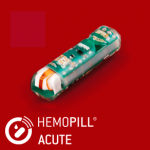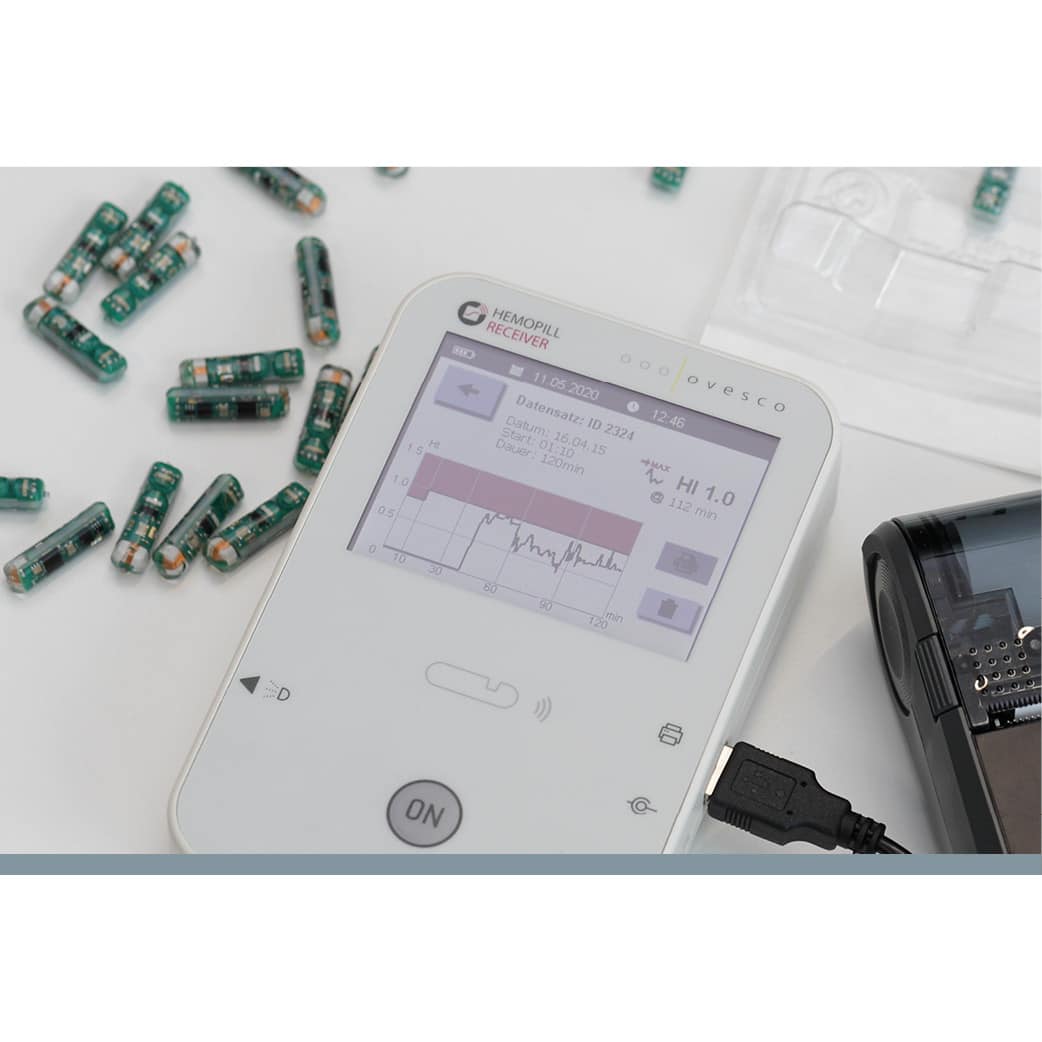Case report: HemoPill® acute capsule guides timing of enteroscopy
HemoPill acute capsule guides timing of enteroscopy in a frail patient with multiple comorbidities
HemoPill acute confirmed gastrointestinal blood loss in the absence of clinical signs of bleeding (obscure bleeding) and re-assured the need of spiral enteroscopy in a 71-year-old patient. The swallowable capsule for real time luminal blood detection can be administered orally, without bowel preparation. Presence of blood was detected in the gastrointestinal (GI) tract approx. 90 min after capsule administration, indicating a small intestinal bleeding site.
At the ESGE Days 2023, J. Rainer, Azienda Unità Sanitaria Locale di Modena, Carpi, Italy, reported on the application of the HemoPill acute in a patient with obscure-occult GI bleeding.
The 71-year-old patient was admitted to the hospital due to severe iron deficiency anaemia without any visible signs of overt GI bleeding (blood loss). He had several comorbidities, such as ischemic heart disease with previous stent placements, COPD and peripheral artery disease. Due to his cardiac condition, he was on long term dual anti-platelet therapy. After blood transfusion, upper and lower GI endoscopy were performed and did not show any bleeding sites. Subsequent video capsule enteroscopy (VCE) revealed angiodysplastic lesions (1b according to Yano-Yamamoto classification) of the proximal jejunum. Device assisted enteroscopy (DAE) was planned to treat the bleeding lesions; but due to the patient`s contraction to SARS-CoV-2 infection the procedure was delayed. The patient’s recovery took several weeks. In the absence of clinical signs of bleeding, HemoPill acute was used to re-assure the indication for VCE.
HemoPill acute is a novel swallowable telemetric device from Ovesco for real time luminal blood detection. The capsule is used in endoscopy as well as in the emergency department for patients with unclear signs and suspected upper GI bleeding. The real time detection of bleeding offers the advantage to being able to decide quickly and efficiently when to perform an endoscopy/enteroscopy or postpone an unnecessary emergency endoscopy. Rainer sees a great advantage of this technology in the fact that it provides instant information by its real time measurement and that it requires neither fasting nor bowel preparation before its application. In this case, blood was detected approximately 90 minutes after application (presumably after pylorus passage, at the small bowel level) confirming the need for DAE. Angiodysplasia was treated using argon plasma coagulation and a spiral enteroscope.
Rainer concluded that HemoPill acute was able to confirm the GI blood loss even in obscure bleeding and helped to guide timing for device assisted enteroscopy. He is curious about future research on the potential of such real time intraluminal blood detection in suspected small bowel bleeding.
Rainer J, Biancheri P, Bonura GF, Deiana S, Gabbani T, Ottaviani L, Soriani P, Manno M. Application of a novel swallowable telemetric device for real time luminal blood detection to guide timing of enteroscopy in a patient with obscure-occult gastrointestinal bleeding. A case report. ESGE Days 2023 (April 20-22), Dublin, Ireland.
 |
 |


 English
English  Français
Français 